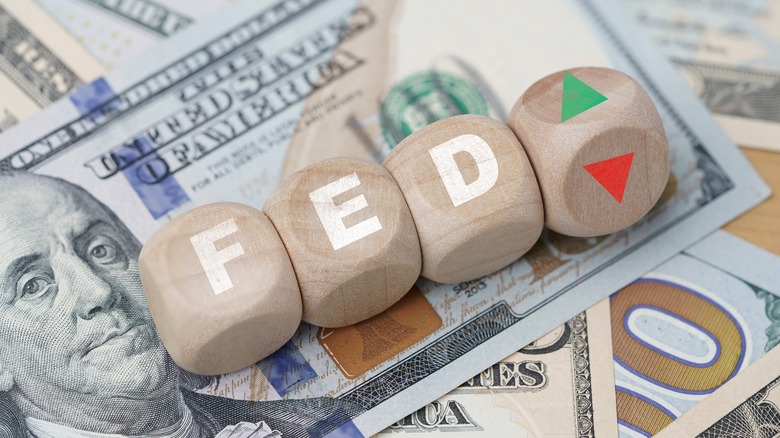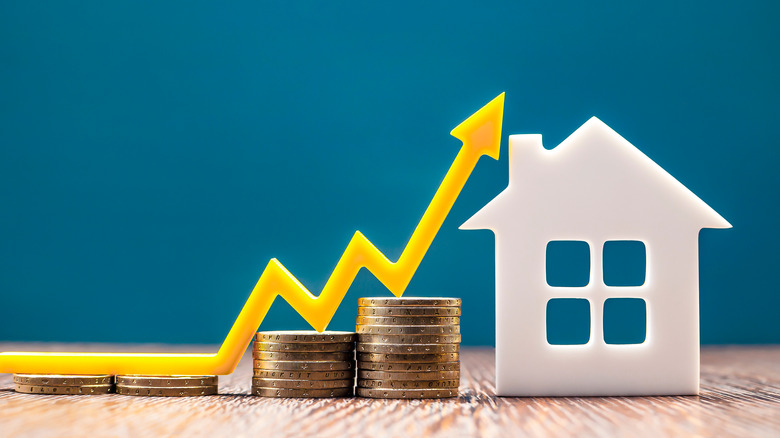How The Federal Reserve's Latest Interest Rate Hike Can Affect The Entire Housing Market
Interest rates are a core component of valuing a home. Most people in the US purchase a home using a mortgage. To do that, they need to provide information to mortgage lenders about their ability to pay for the monthly payment on that loan. The amount they pay per month is directly connected to the interest charged, with a lower interest rate meaning a lower monthly payment. Considering this, as interest rates increase, the cost of homeownership changes, which often means it's harder for people to buy a home because their monthly payments would be too high.
In March of 2022, the federal funds rate stood near zero. This is the fee that banks charge to each other to borrow money, money that ultimately goes to fund mortgages. Lenders charge more than this, adding their fee on top of the federal funds rate. On March 22, 2023, the Federal Reserve announced it had, once again, raised the key lending rate. The Federal Reserve can increase this rate as a way to hold back inflation, which it has done over the course of the last year or so. As of the latest rate hike, the federal funds rate stands at 5%. How does this impact home affordability and the market?
How mortgage rates impact housing demand
Home loan lenders pay close attention to the changes in this key lending rate, often adjusting their rates to coincide with the Fed's moves. The recent increase is likely to mean lenders have to increase their rates to borrowers to generate the same profit margins.
Mortgage rates stood at record-low levels during 2020 and 2021, which is, in part, why the housing market strengthened and home values rose significantly. People wanted to buy homes, pushing the market in many areas of the country to double-digit growth. When rates grew in 2022, that led to a slowing of the housing market, with fewer people wanting (or being able to afford) to buy a home. As rates inch upward further, it may lead to even fewer people entering the market.
Consumers may not qualify for a loan at higher rates. Others who may have one of those record-low mortgage rates right now may not see any financial incentive to move to another home where they would likely need a new mortgage at a significantly higher rate. More so, inflation is still around 6%, according to the Fed, which is much higher than the Fed's preferred 2%. That, in itself, makes it harder to afford a home, drying up demand.
Impact on interest rate hikes and home prices
Many people have noticed home values rise in the last few years. A component of that is due to the demand from so many buyers looking to land low-cost mortgage loans and wanting to move to more fitting homes during the pandemic. Yet, as demand rises and home inventory remains the same or falls, home prices grow.
With the interest rate hike by the Fed, the goal is to slow down the market and inflation, and that could help to lower home prices. Though most experts don't expect home values to crash significantly, the rate of increase in value is likely to be less, and that means more stability over the long term for the market as a whole. There's no way to know how much this impact could be or what the long-term outcome is, but changes in this key lending rate will continue to influence home prices moving forward.


